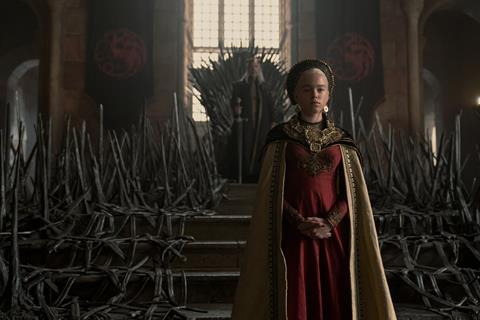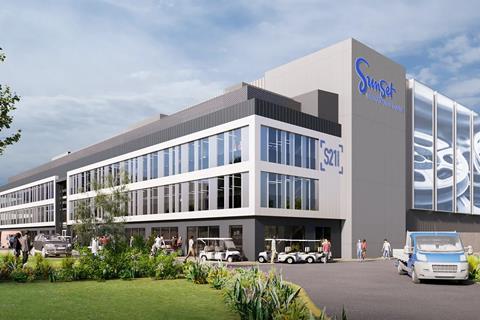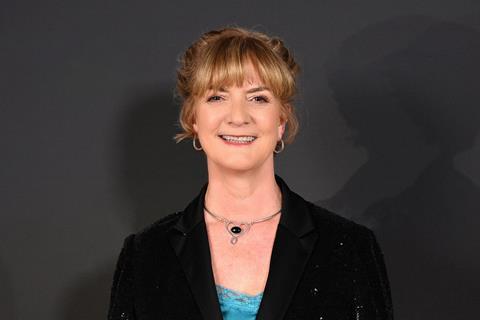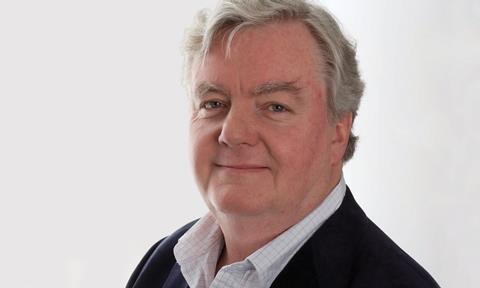
UK studios are facing a challenging few months as uncertainty about a potential rise in the rate of property taxes for facilities in England and Wales rages on, and the ongoing US writers’ and expected actors’ strikes force a slowdown in the once torrential flow of film and high-budget TV from Hollywood.
Significant business rates hikes of up to 200%-300% are being mooted as a result of increases in the rateable value of these facilities made by the UK’s Valuation Office Agency (VOA). For existing studios, the increases, which were due to start in April, will be phased in over three years. However, new studios will have to pay the full amount from the outset. Frantic lobbying is taking place to ensure the rates increases are not too punishing.
“If [the rises at the top rate go] ahead, that could be a death blow for many of the studio businesses in the UK,” warns Iain Smith, chairman of the British Film Commission’s national advisory board.
Last week Sunset Studios, owned by Blackstone and Hudson Pacific, has paused construction on its planned new £600m facility in Hertfordshire amid wariness about rising costs. Blackstone declined to comment and uncertainty remains over the owners’ long-term intentions for the facility.

The hope is the VOA will re-evaluate the tax at a lower rate.
Adrian Wootton, CEO of Film London and the British Film Commission (BFC), said talks are still ongoing between government, the industry and the VOA.
“There is a big highly sensitive data exercise going on right now,” says Wootton. “What we hope is that will lead to an accommodation, something satisfactory to the Valuation Office and satisfactory to industry. [Culture Secretary] Lucy Frazer is absolutely supportive of industry. She recognises, of course, as we do, that the Valuation Office is independent. It is not a political department. It’s an independent department which makes its decisions based on economic methodology.”
Part of the complication is UK studios now come in so many different shapes and sizes - converted warehouses, converted workspaces and new builds as well as the familiar old existing sites. This is making it harder for the VOA to make its assessments than in 2017, the last time it reassessed business rates for these facilities.
The uncertainty is causing jitters at best, havoc at worst.
“What people look for is certainty,” notes Barnaby Thompson, partner at Ealing Studios. “That is what has been troubling about the whole business rates issue is that it creates uncertainty. All these huge productions come to the UK, bringing jobs and bringing millions of dollars because they know they can rely on the tax credits, the qualities of the crews and the quality of the studios…that is our number one selling point. Anything that encourages certainty will help build the business.”
The rise in business rates comes at a time when interest rates are going up, post-Brexit building costs are rising and the industry is recalibrating in reaction to the production slowdown caused by the WGA writers’ strike in Hollywood and the threat of a SAG-AFTRA actors’ strike.
“Inevitably because of the strike, there is a wariness from the content producers to commit,” Wootton acknowledged.
And it is film crews who are feeling the pinch.
“There has been a very marked and noticeable slowdown particularly at the top end,” says Sara Putt, founder of UK independent agency Sara Putt Associates, representing behind the camera technical and production talent. “The people it has affected the most are those who have recently moved up - moved up into producing or editing, because there isn’t the volume of jobs available in the way there has been for the last few years.

“Very experienced technicians still have work but they have fewer choices and the gaps between [jobs] have got larger. For the last few years for most people who are established in a grade, there were probably three or four jobs on offer at many points. Now, it is not so much.
“Smaller independent films and smaller domestic TV shows…have been the mainstay of work for many people in the past few months.”
The hitch here is these smaller shows don’t have big crews - and they tend to recruit more experienced technicians. Trainees and younger crew members are therefore left vulnerable.
Putt confirmed pay rates “have certainly steadied off and in some cases been pushed downwards by economic forces of supply and demand.”
US shoots in the UK
In spite of the ongoing slowdown there is still activity at UK studios. Wootton cited Deadpool 3, Amazon’s Lord Of The Rings: The Rings Of Power, the new season of HBO’s House Of The Dragon and Apple TV+ and See-Saw Films’ Slow Horses (which has UK writers and so is unaffected by the WGA strike) as among the high-profile projects that have been in production recently the UK.
Apart from Deadpool 3, all are understood to have wrapped ahead of the expected US actors’ strike. The status of Deadpool 3 is unknown.
Further US productions at UK facilities that may be impacted by any SAG-AFTRA strike include Warner Bros’ Beetlejuice 2 starring Michael Keaton, Winona Ryder, Jenna Ortega; 20th Century Studios’ Amateur starring Rami Malek, Rachel Brosnahan, Laurence Fishburne; Universal/Blumhouse’s Speak No Evil starring James McAvoy and Mackenzie Davis; Amazon’s Heads Of State starring Idris Elba and Priyanka Chopra Jones; and Universal’s Wicked, starring Ariana Grande, Cynthia Erivo, Michelle Yeoh and Jonathan Bailey.
The status of Studiocanal and Heyday Films’ Paddington In Peru, starring Olivia Colman, Antonio Banderas and Rachel Zegler, also remains unclear. It is due to start principal photography this month. Sony has rights to the film in the US and some other key territories.
Complicated environment
Elstree Studios owned by Hertsmere Borough, remains busy in spite of problems with asbestos and crumbling roofs which, it has emerged, may cost up to £150m to repair. “We are completely full and will be until the end of the year,” explains Lucy McCutcheon, head of sales at Elstree. ”We are currently doing The Crown reshoots. They’ve completed their final season and now then doing pick-up shots and re-shoots. We are just gearing up for [BBC TV show] Strictly Come Dancing.”
McCutcheon said Elstree “will have availability for the first time in many years at the beginning of next year. That’s when we could potentially feel the repercussions of the writers’ strike but, at the moment, we are not affected.”
Producer Bob Last, the director of FirstStage Studios in Edinburgh, acknowledges it is currently a “complicated environment” for UK studios. “On the other hand, we opened the studio formally on the second day of lockdown and so it’s not that we’re not used to working in complicated environments.”
FirstStage, which Last and actor-director Jason Connery launched in early 2020, is hosting the second season of Amazon Studios’ series The Rig, which has a mostly UK cast. “Fortunately, not all of the stuff the big streamers produce is necessarily written by US writers or impacted by SAG-AFTRA,” Last says. “
It is possible there may now be opportunities for UK independent productions to access studio space previously monopolised by US majors.
“What we are seeing is the production arms of broadcasters in Britain are getting much more proactive in partnering with streamer money and resources. They are looking at partnering to do more ambitious things and those kind of shows tend to be less reliant on US talent.
“The more ambitious indie features, we have been able to welcome them,” Last continues, pointing to Nora Fingscheidt’s The Outrun starring Saoirse Ronan. The film is produced by Sarah Brocklehurst’s Brock Media and Ronan and Jack Lowden’s Arcade Pictures, with Germany’s Weydemann Bros and backing from BBC Film and Screen Scotland. Protagonist is handling international sales.
“But of course that indie feature world is extremely tight on budget at the moment,” Last admits. “There is a limit to how much that kind of activity is relevant to our facility. If I was producing an indie feature, I’d probably have to take it to a shed in a field, not to FirstStage Studios.”

Ever the optimists, both the BFC’s Smith and Wootton predict “when the strikes get sorted…there will be a compensatory upsurge in production,” as Smith puts it. “Everybody just has to hold to that the best they can and hopefully things will return somewhat to normal.”
“I don’t get any impression from talking to the United States that they want to stop making film and television here,” says Wooton. “They’re desperate to carry on making film and television here but there are circumstances beyond their control. We have to do everything we can to make sure we maintain the best business conditions we can - which includes making sure we try to get the best rates outcome we can.”
Additional reporting by Louise Tutt.

























No comments yet